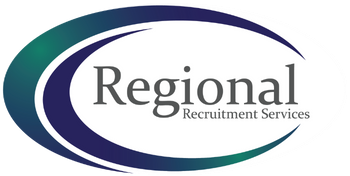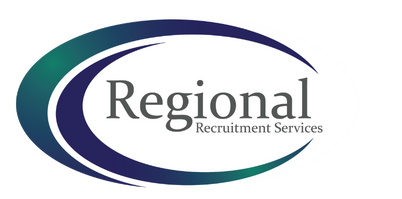Learning at Work: Empower your Team for Continuous Growth
Learning at Work Week 2024
Learning at Work Week is an annual event that aims to encourage and build learning cultures at work. The week puts a spotlight on the importance and benefits of continual learning and development in workplaces, this year it runs from 13th – 19th May.
So, why should businesses take part?
LAW Week offers a great opportunity for employers to remind and engage their employees about learning in the workplace, taking part in events like these can change attitudes towards learning and work, creating a more positive perception and increased motivation to move forward.
It also offers a great opportunity for employers to recognise internal talent, and use this to promote collaboration in the workplace. As well as this, it provides a chance to discover any skills gaps and give necessary training and learning sessions to employees.
Importance of Continuous Learning
With the rise in advance technology implementation and remote working or returning to the office, the continuous development of employees is more important than ever. Employees are having to naturally learn and adapt to changing workplaces and environments, whether that be learning new systems or ways of working, becoming more remote, or even the opposite, returning to the office. Learning at work is particularly crucial for the younger generation who are just entering the workforce, allowing them to grow and develop in their role gives them a great base for their career and valuable experience to take with them in their professional journey.
Continuous learning is known to increase employees productivity and adaptability. By providing your employees with regular training and skill development, it makes for a highly productive workforce, driving organisational success. Having a skilled workforce who are trained on what to do in times of uncertainty is key when moving forward, adaptable employees are vital when navigating the changing business landscape, and the challenges that come with that.
Enhancing employee skills can benefit your business in many ways, especially when fostering long term success and growth. Another benefit skills enhancement is increased employee satisfaction and retention, allowing employees to come to work and learn, instead of doing the same thing every day, boosts their brain and gives them a sense of achievement. This achievement contributes to their workplace satisfaction and increases their likelihood of wanting to stay at your company, as they feel like they are personally and professionally developing from what they learn at work.
Empowering Employees
Empowering and encouraging employees to take ownership of their Learning & Development journey allows them to develop a mindset of curiosity and continuous growth. Reminding employees of the importance of workplace learning for career advancement and their own growth can be encouraging and empowering, giving them a message that they should be taking control of their own professional journey to benefit themselves.
Allowing employees to do online courses and training to support their learning can also be empowering and a spur of motivation. When learning new skills, employees can actively be applying these skills to their job role, allowing for further progression and development. By supporting and making time for employee learning, businesses not only invest in their staff but also in the long term success and innovation of the company as a whole.
Acquiring new skills sparks a sense of ownership and confidence in employees, when individuals feel supported in their journey for growth, they are more likely to take initiative, innovate, and contribute to the overall success of an organisation. This empowerment creates a positive feedback loop where employees feel valued and motivated to excel, leading to a more resilient and competitive workforce.
Tailored Learning Programs
Tailored learning programs can be great for employees who need some extra support, if you work closely with your manager or a learning/development coordinator they can help you to see what areas require further learning and could potentially benefit from a tailored learning plan.
As previously mentioned, the first port of call is to identify any skills gaps there may be with employees, this information could be identified through their performance and also through conversations in one to ones. After identifying this, a tailored learning plan can be appointed to address the areas of improvement, which can then be reviewed and updated in due time.
At Regional we have a dedicated learning and development coordinator, Becky, that helps our consultants, trainees, and apprentices to reach their full potential. Becky, who also works in HR, tracks employee performance and reviews any areas that need working on. Like many industries, recruitment is one that requires staff to be adaptable and continually learning, whether that be through learning new systems and ways of working, or keeping up to date with industry/market trends.
With experience in recruitment herself, Becky provides relevant training and learning needs across the business, creating dedicated and personalised training timetables to help us be the best we can be, whilst facilitating continuous growth and career advancement.
Promoting Collaboration
Creating a learning culture over the whole business often starts with collaboration between employees, learning how people work can give you tips and tricks to help you work more efficiently. At Regional, we have a monthly sales day where our offices come together in a sales challenge to potentially win prizes! We emphasise the importance of collaboration between teams in different branches, helping them to feed off each other’s success and hopefully learn techniques from one another, no matter what stage of their career they are in.
Employers can promote collaboration through, mentorship programs, these are useful when you have a big influx of staff. Mentorship programs allow seasoned employees to guide and mentor new recruits, this is great as they can share their expertise from in and outside the business to pass on knowledge to the new starters, it also creates a sense of community and support within the workplace. Another idea for smaller businesses perhaps, is to organise team based learning activities such as workshops, brainstorming sessions, or problem solving challenges. As well as facilitating knowledge, these activities also promote teamwork.
The Future of Workplace Learning
Workplace learning and training will continue to be crucial to businesses now, and as we head into the future. As we look to the future of learning at work, it's evident that the landscape of workplace learning is rapidly evolving, driven by advancements in technology and shifting employee preferences.
A trend that is increasingly being used in workplaces is gamification, which involves incorporating game elements such as points, badges, and leaderboards into learning experiences to make them more engaging and interactive. By gamifying learning, organisations can increase motivation, participation, and knowledge retention among employees, turning mundane tasks into enjoyable and rewarding experiences. An example of this is that at Regional we have a Sales League, where all of our billers try to get to the top of the league by the end of the month, this adds a healthy sense of competition to help consultants reach their financial targets.
To stay ahead of the curve in the rapidly evolving landscape of workplace learning, organisations need to embrace these emerging trends and incorporate them into their learning strategies. This requires a willingness to adopt new technologies, experiment with innovative learning approaches, and continuously adapt to the changing needs and preferences of employees. Furthermore, organisations must prioritise flexibility and personalisation in their learning initiatives, allowing employees to choose learning paths that align with their interests, goals, and learning styles.
Resources & Tools
To support your workplace learning, it’s important to know where to start in terms of resources, every work place is different but it is key to start with what you have around you! For example, online platforms, social media, internal learning management systems, webinars, podcasts, even good old fashioned books!
Want to hear from Regional's Learning and Development team, including strategies on how to help upskill your workforce? Click on the video below.











